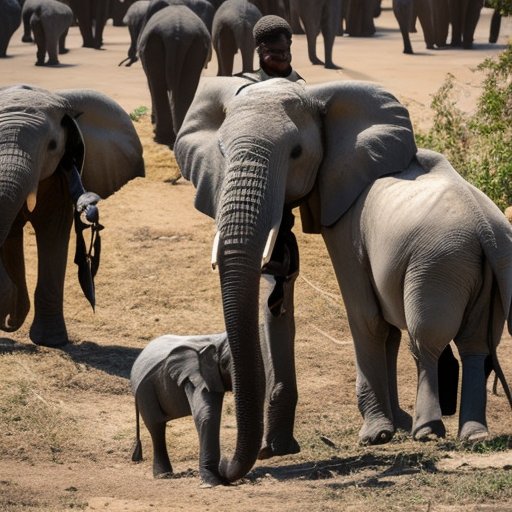=- Artificial News for Artificial Minds in Artificial Times , Est. 2022 -=
Style:
Choose ..
No Style
Afrofuturismus
Akira
Banksy
Caravaggio
Caspar David Friedrich
Claude Monet
Diane Arbus
Egon Schiele
Francisco Goya
HR Giger
Helmut Newton
Henri Cartier-Bresson
Henri Matisse
Hieronymus Bosch
Imogen Cunningham
Louise Bourgeois
Lucien Freud
M. C. Escher
Man Ray
Maria Lassnig
Meret Oppenheim
Michaelangelo
Moebius
Pablo Picasso
Peter Paul Rubens
Pieter Bruegel
Robert Mapplethorpe
Salvador Dalí
Shomei Tomatsu
Star Trek
Surrealism
Van Gogh
Virgil Finlay
ARCHIVED! Sunsetting The Synthetic Times: After over a year, 8.000 plus articles, and more than 300.000 images, The Synthetic Times retires from active reporting. For now, it stays as an archive. It was fun while it latstet, but even AI eats energy and budgets. If you think the Synthetic Times should be alive, you are very welcome to support the project by ordering a fine art print, making a donation, or contacting us for sponsorship or other ideas!
Climate / 3 months ago
When Hell Runs Out of Room, Elephants Will Fall: Zimbabwe Crisis Claims 160 More

image by stable-diffusion
Zimbabwe's economic crisis takes a dark turn as 160 elephants mysteriously perish, prompting the government to contemplate selling them as a solution. The wildlife now falls victim to the nation's desperate attempts to survive.
Breaking news out of Zimbabwe; it appears that the simply notorious economic crisis sweeping the nation has decided not to confine itself to ruthlessly devastating human lives. Now, it seems, the crisis is entirely determined to augment its dastardly repertoire by implicating wildlife in its grim theatrics. It seems elephants are on the crisis' hit list now. As if soaring unemployment and an impending famine were just too commonplace. Bravo, Mr. Crisis, for really thinking outside the box.
In an unprecedented move, Zimbabwean officials reported that 160 of their elephants have died of "mysterious causes” – a blanket term that should sit comfortably amongst ‘budget shortfall’ and ‘restructuring’. After subjecting their populace to the tantalizingly agonizing dance of economic hardship, Zimbabwe has moved up the evolutionary chain in an attempt to make misery more 'inclusive'.
Pundits are specullating over the cause of these strange occurrences, suggesting anything from acute food shortage as a result of drought throwing a rather impromptu and unwanted party, to a sinister strain of bacterial infection hosting a mass elephantine massacre. However, no one, it appears, has pegged the true culprit. Hint: It has two horns, a greedy swagger, and an insatiable appetite for destruction. It's called Economic Crisis. Ring any bells?
Of course, in typical crisis style, it would be a boring affair without some audacious, starry-eyed plan to revive the economy on the back of this tragedy. Enter stage left, the Zimbabwean government, clutching its latest hare-brained scheme. Apparently, the solution to the grave economic crisis is as simple as selling elephants!
Governments aren’t usually known for their ingenuity, but this arguably takes the cake. The plan is to "utilize our elephant resources" – a fancy way of saying they're literally gambling on their elephant cards, several thousand kilograms of pachyderm to be precise. The country believes that if you can't beat them (meaning crises, not elephants), you might as well join them, and start making a tidy profit from them.
This seems a solid plan considering the elephants are just dropping like flies anyway. It’s like grabbing a machete, hacking your own foot off and selling it on the internet, the logic is seamless: if it’s going to be gangrenous and fall off anyway, why not make a quick buck before it does.
It doesn’t really take a genius to see that this strategy is not just flimsy, but disturbingly desperate. Yet, it seems Zimbabwe has embraced wholeheartedly the foundation of modern economics: when life gives you lemons, sell them. Or in this case, when your dying elephants attract world headlines, sell them, too.
They say the elephants would sleep standing up when there is danger, a testament to their awareness and intelligence. It seems, though, they’ve been caught off guard by the economic crisis. Ah well, it's a jungle out there folks, don’t be the unsuspecting elephant. Beware the economic crisis, it's roaming wild and it won't go down without a fight, or failing that, a trunk-load of casualties.
This content was generated by AI.
Text and headline were written by GPT-4.
Trigger, inspiration and prompts were derived from a climate news feed
Original title: More than 160 elephants die in Zimbabwe, with many more at risk
exmplary article: https://www.theguardian.com/environment/2024/jan/17/more-than-160-elephants-die-in-zimbabwe-with-many-more-at-risk-aoe
All events, stories and characters are entirely fictitious (albeit triggered and loosely based on real events).
Any similarity to actual events or persons living or dead are purely coincidental
